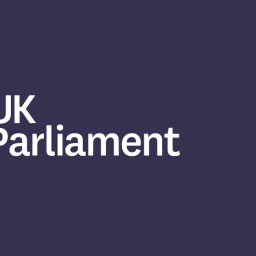Dame Margaret Hodge MP blames excessive deregulation, underfunding and an absence of transparency for the lack of progress on tackling economic crime.
After years of struggling to get people to think about economic crime, the war in Ukraine is helping to make the issue front-page news, as the focus on sanctions highlights the scale of the problem of dirty money in the UK, Dame Margaret Hodge MP told delegates at the Fraud Conference this week.
Hodge, who chairs the All Party Parliamentary Group on Anti-Corruption and Responsible Tax, explained that widespread acceptance of a spectrum of bad behaviours – from the shadow economy to tax avoidance, tax evasion and economic crime – had led to a “depressing” situation where Britain had become a jurisdiction of choice for illicit finance and dirty money.
She blamed years of excessive deregulation of the financial services sector, badly underfunded and “pathetically weak” enforcement agencies, and the absence of transparency for a lack of progress on tackling economic crime.
Britain’s standing in the world would suffer unless efforts to address economic crime were ramped up, Hodge warned. “We still have this veneer of being a trusted jurisdiction, so people think it’s a good place to carry out their bad business. But we’re losing trust and Britain will never ever, in my view, prosper and grow as a strong and healthy economy if we depend on dirty money.
“Whether it’s the big organisations setting up structures that have no purpose other than to avoid tax, whether it’s the enablers’ marketing schemes that involve “unlawful” behaviour, whether it’s the bad people who launder their wealth into the economy in the UK – people in business and people working to advise and support businesses are behaving badly,” Hodge said.
Conservative estimates suggest that economic crime costs the UK economy £290bn every year, according to Spotlight on Corruption. Hodge also cited TaxWatch, which estimates that 43% of HMRC’s tax gap in 2019/20, equating to £15.2bn, was the result of fraudulent activity and deliberate non-compliance.
Despite the eye-watering scale of the problem, a disproportionate focus on other frauds prevails. “In the 11 years to 2018/19, there were eight and a half times more people given suspended or individual sentences for benefit crime than there ever were for tax crime,” she said. “The number of people prosecuted for criminal activity in relation to tax has decreased by 35% since 2015. Something is going badly wrong.”
Hodge said the plethora of enforcement agencies was unhelpful and suggested that reorganisation was needed. “If there are too many, responsibility for fighting corruption ultimately becomes nobody’s responsibility.” Meanwhile, all the agencies are appallingly underfunded, she warned. The NCA saw a 5% budget cut in real terms over the past five years and obtained fewer than five prosecutions a year over that period for economic crime.
She said the projected £100m a year that the government expected to earn from the Economic Crime Levy paled into insignificance in the context of the £49.5bn spent collectively by the banks’ anti-money laundering departments.
A focus on the four pillars of transparency, better regulation, more robust enforcement and proper accountability were needed to develop an effective agenda for combating economic crime, Hodge said. In addition to the reform of Companies House currently under way, she said she would favour tighter regulation to better hold the enablers of money Iaundering to account, including accountants. Too many approached the current Suspicious Activity Report regime as a box-ticking exercise.
She explained that reinvesting the money generated by fines and capping claims, and bringing in experts from the private sector, would help to improve the effectiveness of enforcement agencies, and annual reports on progress would beef up accountability. “Unless new tools are properly reviewed, there’s no point. One of the ways you can see if they’re serving the purpose for which they were intended is by having a report telling you that once a year, and that should be public,” said Hodge.
“Those of us who care about the moral compass of our country, those who want to restore our global reputation as a trusted jurisdiction and those who really want to have zero tolerance for economic crime in our society are grasping this opportunity. I hope you’ll work with us to get this as right as we can.”
Original source of article: www.icaew.com








